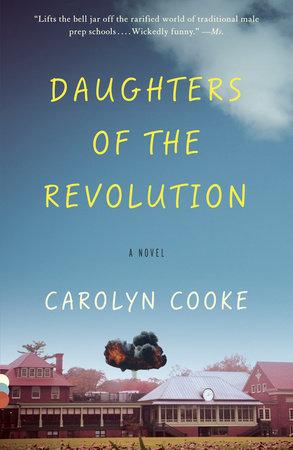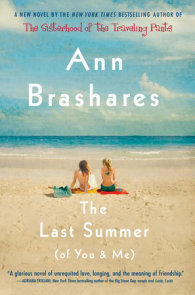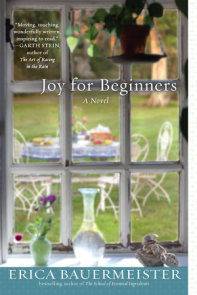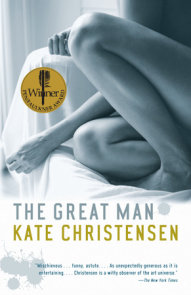READERS GUIDE
The questions, discussion topics, and reading list that follow are intended to enhance your reading group’s discussion of Daughters of the Revolution, the debut novel from acclaimed writer Carolyn Cooke.Introduction
“So smart, so visceral, so sexy . . . Absolutely brilliant.” —Kate Walbert, author of A Short History of WomenFrom the O. Henry Award–winning author of the story collection The Bostons—a New York Times Notable Book, Los Angeles Times Book of the Year, and winner of the PEN/Robert Bingham Fellowship for Writers—an exquisite first novel set at a disintegrating New England prep school.
It’s 1968. The prestigious but cash-strapped Goode School in the town of Cape Wilde is run by its aging, philandering headmaster, Goddard Byrd, known to both his friends and his enemies as God. With the nation engulfed by the social and political storms of integration, coeducation, and the sexual revolution, God has confidently promised coeducation will come to Goode “over my dead body.” And then, through a clerical error, the Goode School admits its first female student: Carole Faust, a brilliant, intractable fifteen-year-old black girl.
A ferociously intelligent, richly sensual novel about the awkward collision of privilege, tradition, and the possibility of radical social change, Carolyn Cooke’s debut is remarkable for the precision of its language, the incandescence of its images, and the grace and gravity of its themes. A distinctive new voice in American fiction.
Questions and Topics for Discussion
1. Who is the main character in this novel? Why are the EV sections told in first person?
2. There are several unusual character names here: God, Heck, Mei-Mei, EV, Pilgrim. What is the metaphorical significance of the names?
3. For God, “loss was one theme: the headship of the school, the battle over girls, memory, prostate, lung, teeth, foreskin.” What are some other themes in the novel?
4. What does the title mean? Who are the daughters of the revolution?
5. Discuss the class issues raised throughout the book. What effect does money have in determining one’s place in society as opposed to gender or ethnicity?
6. Why isn’t the story told chronologically? Discuss how the author plays with time.
7. What do you imagine happens to Archer Rebozos in the years following the accident?
8. Goddard Byrd swears that the Goode School will admit girls “over my dead body.” Is God a misogynist?
9. God sees a phrase written in graffiti: “Are we not drawn onward we few drawn onward to new era?” What does it mean? Mrs. Rebozos points out that it’s a palindrome. Why is this significant?
10. Herman Melville’s novel Moby-Dick comes up again and again over the course of the novel. Carole Faust compares herself to the whale, calling herself a “fearful symbol.” What point is the author making with this connection? What is the role of literature in the novel?
11. In what ways does Carole represent the radical changes of the 1960s?
12. EV says, “Mei-Mei thought my father’s death was a story about accidents, threats, loss, abandonment, risk. ‘Be careful,’ she used to tell me . . . ‘Don’t die.’” It sounds like she thinks her father’s death was about none of those things. What did it mean to her?
13. Several times, we are told that Mrs. O’Greefe had her own nipple grafted onto her forehead. What is the significance of this act?
14. Discuss EV’s trip to the Caribbean island, which ends with the news of her roommate’s murder. What does the reader learn during this section of the book? Why is the reckless EV safe while the cautious Jess dies?
15. Mei-Mei points out the similarities between Pilgrim and God. Why does EV choose a man like Pilgrim?
16. After she has sex with Pilgrim, Mei-Mei wonders if she had ever been a good mother to EV. Do you think she was? Why does she sleep with Pilgrim?
17. Why does God get circumcised? How does it bring about his downward spiral?
18. Discuss the character of Mrs. Graves. Why is she so devoted to God? What does she get out of their relationship?
19. In her speech at the end of the novel, Carole says that God is “the secret of my success.” How so? Do you think he knew this?
20. When Mei-Mei tells Carole about Heck’s accident and the life jacket, EV is shocked, because it “changed our whole story into a story about power and economics, about our lesser equipment and poorer tools. I’d misunderstood everything.” How does this one detail make such a difference? Why hadn’t Mei-Mei told EV about it before?





















